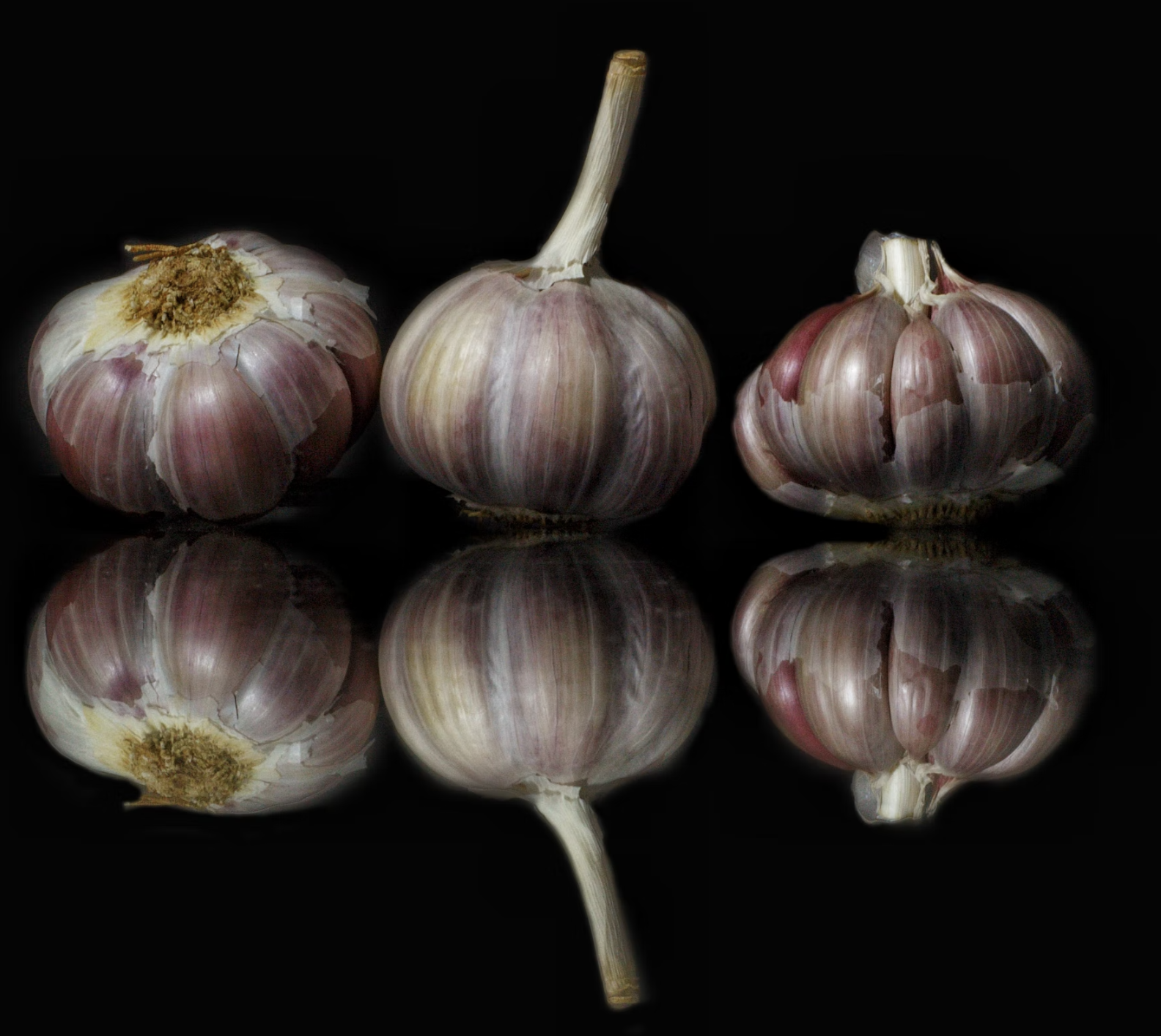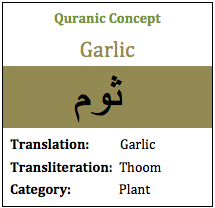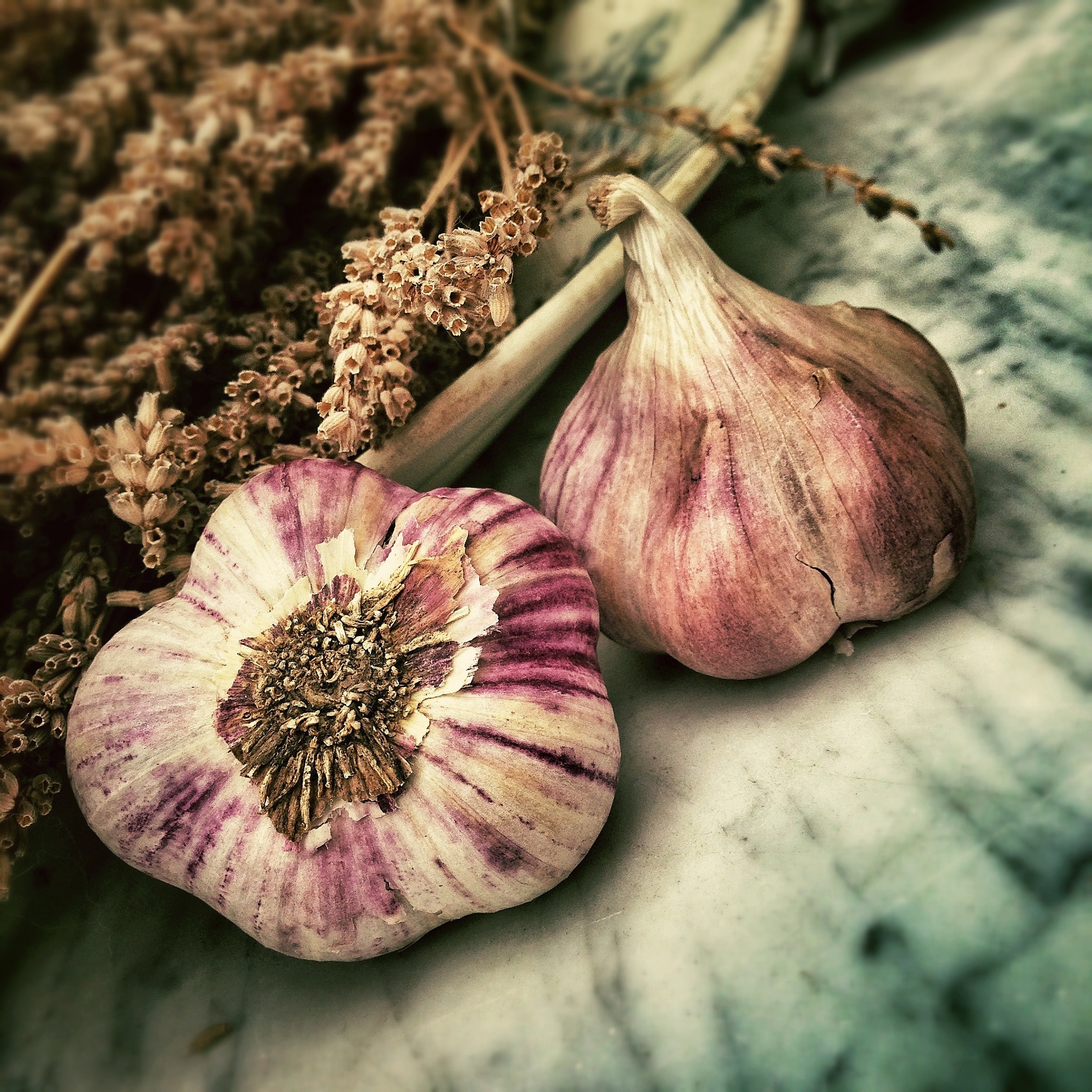For a small vegetable, garlic sure has a big reputation. Check out why Islam promotes its consumption one clove at a time.
Garlic does not bring good luck or ward off vampires, but it can transform any meal into an aromatic and healthy culinary experience. Garlic (from the allium family) is a cousin to onions, leeks and chives, which is why it is known for its pungent punchy flavour and fragrance.
Why is garlic holy to Muslims?
Garlic is mentioned just once in the Qur’an, Islam’s divine scripture. The revelations about garlic and herbs were sent in the historical context of the Children of “Israel”, that is, the descendants of Prophet Yaqūb or Jacob. They weren’t too happy about the types of food God provided for them and so they spoke to their Prophet Moses:
‘…And [recall] when you said, “O Moses, we can never endure one [kind of] food. So call upon your Lord to bring forth for us from the earth its green herbs and its cucumbers and its garlic and its lentils and its onions.” [Moses] said, “Would you exchange what is better for what is less? Go into [any] settlement and indeed, you will have what you have asked”…’ (Qur’an, 2:61)
In the exegesis (tafsir) of this verse we learn that God reprimanded the Children of Israel for asking to exchange one type of food for something considered inferior. The lesson was to enjoy and be creative with the healthy and natural produce you have.

Thūm or Fūm: how do you say garlic in Arabic?
 The classical Qur’an scholar Ibn Abbas, said that the Arabic word Fūm translated as garlic, while Ibn Mas`ud read it as Thūm (‘th’ as in thin).
The classical Qur’an scholar Ibn Abbas, said that the Arabic word Fūm translated as garlic, while Ibn Mas`ud read it as Thūm (‘th’ as in thin).
Fūm (Foom) is one of those words whose pronunciation altered whereby the letter ‘fa’ was replaced with ‘tha’, although according to Ibn Kathir, another original Qur’an interpreter, Fūm is also a type of wheat used for baking bread. (Fumu-lanna means ‘bake for us’)
In Hebrew, a semitic language that pre-dates Islam, people say “shoom” for garlic.
What’s allicin?
When garlic cloves are chewed, crushed or cut, they release a sulphur-bearing compound called allicin – the chemical that gives garlic its pungent taste and smell. And it’s the allicin that is thought to be responsible for garlic’s therapeutic qualities.
Apart from the eye-watering bite, garlic reeks when eaten raw. Too much is even bad for your digestion. This is something to consider particularly when you’re meeting clients, about to get kissed or visiting God’s place of worship to pray.
Prophet Muhammad, said: “Anyone who eats garlic and onions or leeks should not come near our Mosque. The angels are harmed by what harms the sons of Adam.” [Muslim hadith]
Consideration for others and good hygiene is the message here. Garlic breath is a no-brainer so use common sense and don’t overdo it.
Origins of Garlic
Garlic grows as a “bulb” head, averaging about 2 to 3 inches in size and consists of numerous small separate cloves. Both the cloves and the entire bulb are encased in paper-like coats that can be coloured off-white or have a pinkish hue.
To remove, use a small knife to peel the skins, drop the cloves into boiling then cold water to shock them or (and this is my favourite method), bang each clove with the flat side of a knife/rolling-pin against a chopping board and pick the skins off.
Garlic is native to central Asia and has long been a staple in the Mediterranean region. Garlic is grown globally, even in the United Kingdom but according to the United States Department of Agriculture (2006), China is by far the largest producer of garlic, with approximately 10.5 million tonnes grown annually, accounting for over 77% of world output. India (4.1%) and South Korea (2%) follow, with Egypt and Russia (1.6%) tied in fourth place. People tend to steer clear of Chinese garlic if possible because of unrestricted use of pesticides in China and the bleaching of their garlic.
Fresh, dried and powdered garlic are available in markets throughout the year, however, fresh varieties from the UK are in season from autumn – September – right through to late spring – April. You can always grow your own. If you live in cold climates, plant teeth after the first frost and cover with straw. You should have lots of new garlic the following summer.
Choose a hardy variety like ‘white pearl’.
Cooking With Garlic
The papery, protective layers of “skin” over garlic are generally discarded for cooking although garlic is best roasted whole in the oven, skins and all intact.
Garlic is a wonderful seasoning to breads, soups and meat dishes. Try sourdough bread, our recipe? It can be added at the first stage to a recipe, crushed or ground to a paste and fried in a little oil. Or it can be grated at the end of cooking process to retain the maximum flavour and nutrition.
Roast whole cloves with potatoes and chicken until they’re charred and soft; for garlic bread just rub a sliced clove onto a halved baguette and drizzle in olive oil before grilling.
Health Benefits Of Garlic
Garlic’s antibacterial and antiviral properties are perhaps its most legendary feature.
If you feel a the flu virus attacking (or coronavirus) eat a raw clove or two knowing that it’ll beat the virus faster than prescribed medicine. Of course don’t munch on garlic as is—unless you’re happy with that—thinly slice it, eat it with toast or chop in halves and gulp down with water like a pill.
This vegetable has been studied not only for its benefits in controlling infection by bacteria, but also infection from other microbes including yeasts and fungi.
Our red blood cells use molecules from garlic called polysulfides to produce hydrogen sulfide gas (H2S). This in turn helps our blood vessels expand and keep our blood pressure in check.
Other benefits from just one clove a day will top your body’s supply of:
- Vitamin C – for tissue growth and repair
- Vitamin B6 – important for metabolism and immunity
- Selenium, iron, calcium and manganese minerals
There are people who are allergic to garlic so be kind and ask before cooking for others.
Note: Don’t microwave garlic as this kills its active ingredients.
More holy greens from Islam:
Plants Of The Quran: Pomegranate
Is Organic Food Really Healthier?
Black Cumin: Islam’s Miracle Cure Seed
Article updated March 2022



